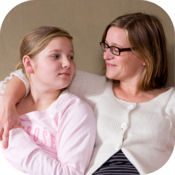 An educator told me the other day that his definition of an at-risk child was one going through middle school.
An educator told me the other day that his definition of an at-risk child was one going through middle school.Twenty-two percent of all American students between the ages 12 and 18 have reported being bullied at school, according to the National Center for Education Statistics. Bullying, most prevalent amongst kids in middle school, can range from name-calling and rumor spreading, to being threatened or physically harmed. Before the age of tweeting and smart phones, kids who were bullied could usually count on home as a haven. Now, teenagers reported being cyber-bullied by unwanted contact through phone or computer messages. There is now no escape-even at home. This may explain, at least in part, the recent rash of teen suicides of bullied teens. Most of these teens were either gay or perceived to be by their bullies. These deaths have sparked public outcry and an outreach program, the It Gets Better Project, started by columnist Dan Savage, to offer bullied teens support. On a dedicated YouTube channel, everyday people and celebrities remind teens-especially GLBT teens-that life gets better if they can only survive to enjoy it. One of the more moving videos is of Fort Worth City Councilman Joel Burns during a council meeting. During the 12-minute video, Burns breaks into tears and explains that the love of his parents, whom he thought wouldn't understand his sexual orientation, is what kept him alive. This type of parent-child relationship starts way before middle school. Kids who feel loved and listened to by their families are more likely to get through tough experiences such as bullying. Gay teens aren't the only ones being bullied-and bullying isn't confined to middle and high schools. A YouTube video certainly isn't the only support a bullied child needs. Bullied children often feel powerless, ashamed, and might not come looking for help, so parents need to keep their eyes open for warning signs. The Stop Bullying Now! campaign from the U.S. Department of Health Resource and Services Administration lists the following as possible signs of bullying:
My boys are in daycare and my oldest son (who recently moved into the 3-year-old room) began coming home talking about "best buddies" and how this girl or that boy was mean. One day he told me he couldn't play with a girl he really liked because she was rude to one of his best buddies. "She's stinky," he said. I have a general policy of not getting involved in kids' arguments. But he had crossed a line I didn't even know I had drawn. "No," I said sternly, looking at him in the rear-view mirror. "You liked her yesterday. Maybe she was having a bad day. What if she wants to play with you tomorrow? You'll feel bad for calling her names. We don't do that. She's your friend, right? Is she nice to you?" "Yeah, she is," he said. "Yeah. She's my friend." I breathed a sigh of relief. My hope is if I stop "stinky" now, I won't have to worry about some worse slurs later on. |
Is Your Child Being Bullied?
The Signs--and How You Can Help
Page 1 of 1






Member Comments